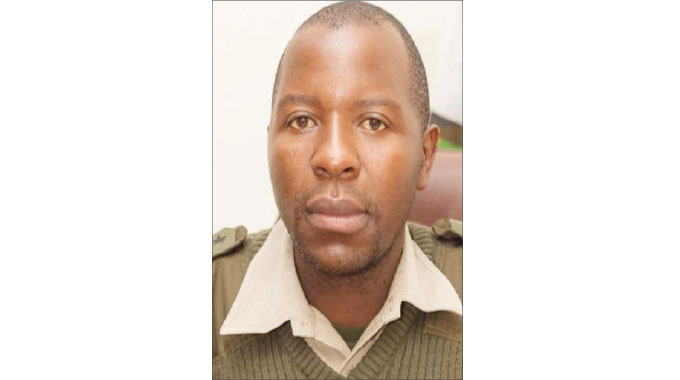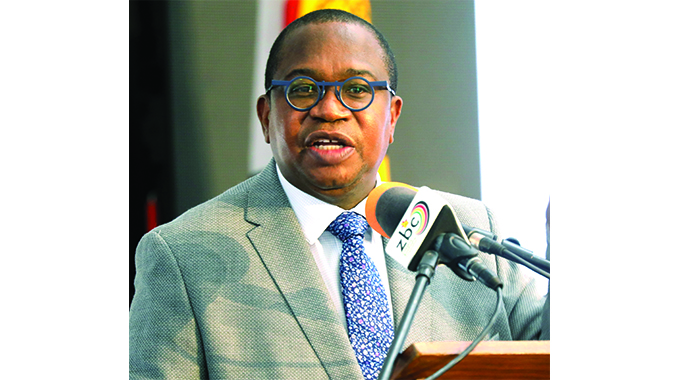Financial bail-outs for communities hit by human-wildlife conflict

Yoliswa Dube-Moyo, Mat South Bureau Chief
Communities living within the Greater Mapungubwe Transfrontier Conservation Area (GMTCA) will soon be getting financial support to cushion their livelihoods as efforts to manage human-wildlife conflict continue.
The GMTCA encompasses land in Botswana, South Africa and Zimbabwe.
In Zimbabwe, Gwanda and Beitbridge Districts make up part of the GMTCA and surrounding communities rely on livestock rearing and agriculture for their livelihoods.
Competition between game and livestock has increased, contributing to an escalating level of human-wildlife conflict.
Climate change impacts have also resulted in significant decreases in crop yields and available grazing areas for livestock, linked to decreasing rainfall.
A 250 000 Euro fund is set to be released to support these communities so that they realise the importance of conserving wildlife.
Gwanda Rural District Council environmental officer Mr Sijabuliso Masango said the fund focuses on communities which live around parks.
“For this one, it’ll be focused on Wards 16, 19, 20 and 24 which surround the park. It’s going to cover both Gwanda and Beitbridge. The major beneficiaries are the local community because on a broader scale, the aim is to address the impacts of climate change in and around parks, zeroing in on human-wildlife conflict,” said Mr Masango.
He said a lot of elephants destroy crops which makes agriculture in some areas futile.
“We’ve got a lot of elephants which destroy crops. People are trying to farm year in year out and elephants come and raid the crops. So, we want to come up with packages to ensure that there’s minimum loss of crops, minimum loss of human life and minimum loss of infrastructure.
Look at water infrastructure and all that, elephants destroy that. On the other hand, there are hyenas, for those communities who live around parks, there’s always problems with hyenas, lions and sometimes hippos. We’re trying to address the issue of human-wildlife conflict and come up with cushion, or shock absorbers for such occurrences,” said Mr Masango.
He said efforts were being made to change perceptions about wildlife.
“We want to change the way wildlife is perceived in those areas because now you find that there’s animosity; the relations between humans and wildlife are strained because for a long time people have been accusing councils saying wildlife belongs to councils; wildlife has destroyed crops, council should pay and all that.
We want them to view wildlife as one of their resources to uplift their livelihoods,” said Mr Masango.
A treaty outlining how the Transfrontier Park will operate is yet to be signed by the Presidents of South Africa, Botswana and Zimbabwe.
He said a treaty is a contract among countries which details how the business of the Transfrontier Park will be handled.
“The treaty has not yet been signed by the respective presidents of the three countries. That’s being handled by Zimparks (Zimbabwe Parks and Wildlife Management Authority) because they’re the coordinators nationally. They’re hoping that the treaty will be in place by the end of this year.
For us to have a transfrontier park, there has to be a treaty in place because it’s going to involve three countries. That’s the document that gives birth to the tri-lateral arrangement among the three countries; Botswana, Zimbabwe and South Africa,” said Mr Masango.
“That’s the major hold up, once the treaty comes into place then everything will flow,” said Mr Masango.
Zimparks public relations manager Mr Tinashe Farawo said a memorandum of understanding had already been signed by the parties involved.
“We’re now working on a treaty and hope to have one as soon as possible. We have managed to secure more than 250 000 Euros that will be invested in the project. We hope to start the implementation during the first quarter of 2022,” said Mr Farawo.
Communities and the TFCA are working together to establish and promote alternative livelihood options in the face of increasing environmental instability. In this context, eco-tourism is seen as a key alternative land use option, and beneficiation options are being considered in the various countries. In Zimbabwe, through the participation of the Beitbridge Rural District Council and Gwanda Rural District Council, there is strong school-based community engagement and an emerging trend of eco-schools.
The TFCA boasts a range of cultural and natural history activities. Cultural history activities include visits to the Lost City at Mapungubwe Hill, an interpretation centre and a number of heritage routes and trails. Wildlife tourism includes game drives with a number of lodges and bush camps situated across the TFCA.
Adventure tourism activities are also successfully introduced by the GMTFCA partner countries, including the annual Nedbank Tour de Tuli, which is attended by cyclists from across the world offering participants a chance to visit all three countries while cycling through wild areas. – @Yolisswa.










Comments